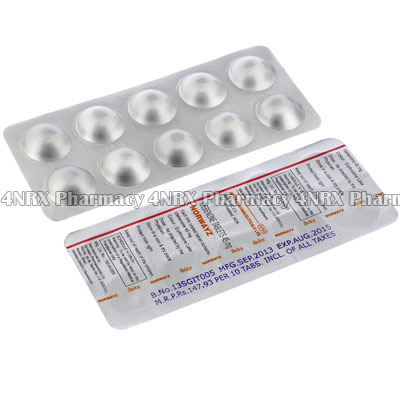 |
Home  Neurological Health Neurological Health  Norwayz (Idebenone) Norwayz (Idebenone) |
|
|||||||||
|
|
Norwayz (Idebenone)
What is Norwayz (Idebenone) used for? Norwayz (Idebenone) is a nootropic medication used to treat Duchenne muscular dystrophy, Friedreich's ataxia, or to prevent dementia caused by Alzheimer's disease. It operates by strengthening neurotransmitter connections in the brain to improve memory and cognitive thinking. Your physician may also prescribe the medication to treat other unlisted conditions. How should I use Norwayz (Idebenone)? Follow your physician's instructions while using Norwayz (Idebenone) to get the most effective results from treatment. One tablet is normally taken each day, but your particular directions will depend on your health condition and the severity of your symptoms. These should be swallowed with a full cup of water and may be taken on an empty stomach. Do not split, chew, or crush the tablets before use to avoid destroying or altering the effects of their contents. Ask your physician any questions you have about the medication to make sure you are using it correctly. What are the side effects of Norwayz (Idebenone)? When administered correctly Norwayz (Idebenone) will not cause side effects in most patients. Stop using the medication and contact your physician if you experience any symptoms that are intense or worrying to make sure the correct response is taken to prevent further problems. This may include lower doses, reduced application frequency, or emergency medical attention in more serious cases. Please Note Strictly follow all instructions provided to you by your physician or pharmacist while using Norwayz (Idebenone). Optimum and safe dosage can differ based on the patient and the condition being treated. As this medication may be unsafe for certain patients, it is essential you always inform your physician if you are pregnant or breastfeeding, as well as if you have any allergies, other illnesses, or ongoing health conditions, and if you are taking any other form of medication, supplements, or herbal products. Immediately seek emergency medical care if you have an allergic or hypersensitive reaction. Common signs of a reaction include hives, swelling, skin rashes, chest pains, as well as trouble breathing or swallowing. 
|
||||||||||||||||||||||